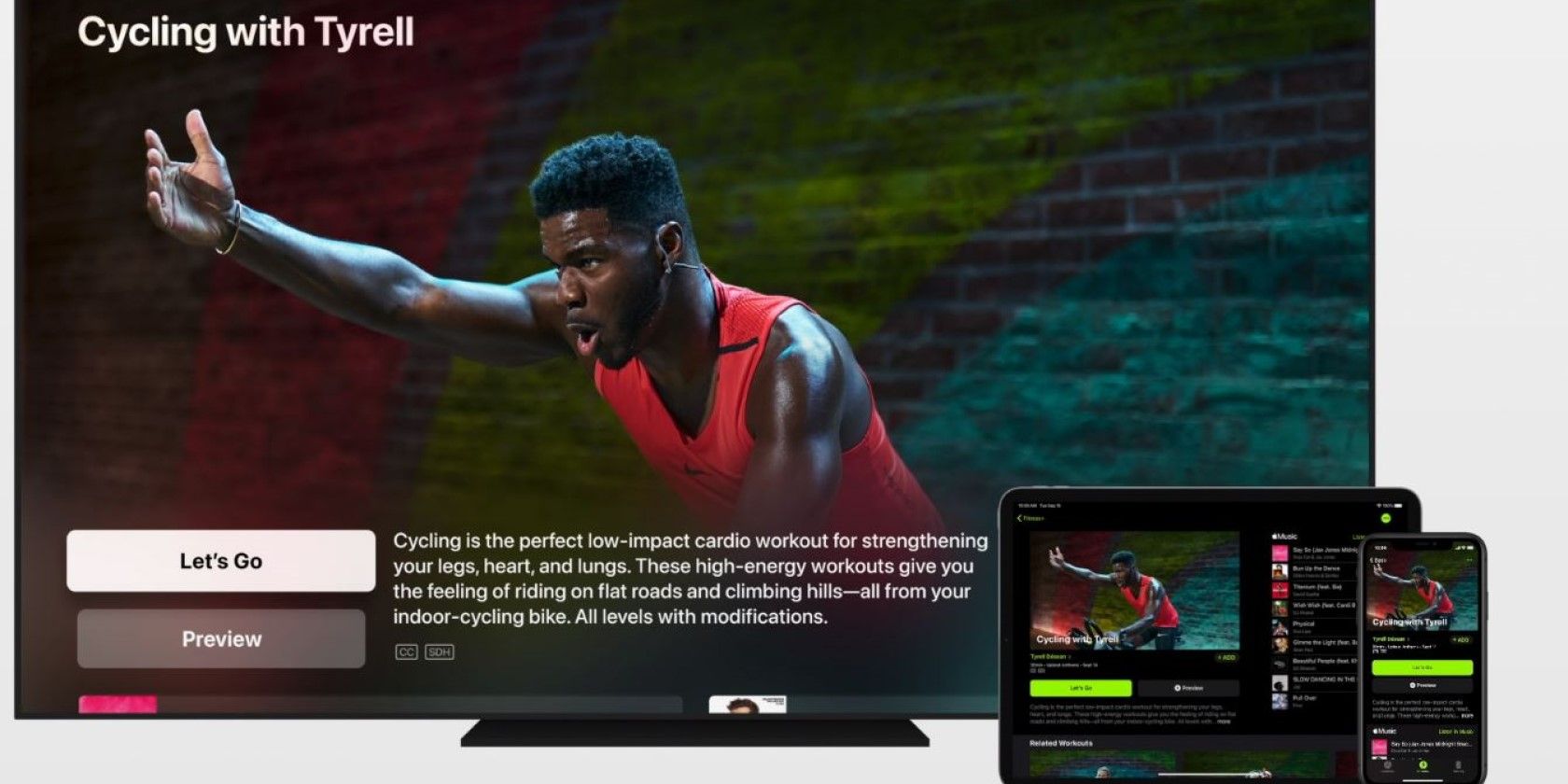It’s no secret that your phone collects data about you. Apple claims it is one of the most privacy-focused companies when it comes to your data.
That being said, how much data that iOS collects gets shared with Apple? That’s what we’re going to take a look at.
What Data Does iOS Collect?
Now that you know iOS collects data on you for Apple, you’re probably wondering exactly what data the platform collects. We can learn a large amount about what data Apple collects from the data request form on the Data & Privacy page (more about that later). The page shows that Apple has collected data on the following:
- App Store activity
- iTunes Store activity
- Apple Books activity
- Apple Music activity
- Apple Podcasts activity
- Apple Arcade activity
- Apple ID account
- Device information
- Apple online and retail store activity
- Wallet activity
- AppleCare and support activity
- Game Center activity
- Bookmarks and Reading List
- Calendars and Reminders
- Contacts, Notes, and Maps
- Marketing communications
- Downloads
- Other data
- iCloud Drive files
- iCloud Mail
- iCloud Photos
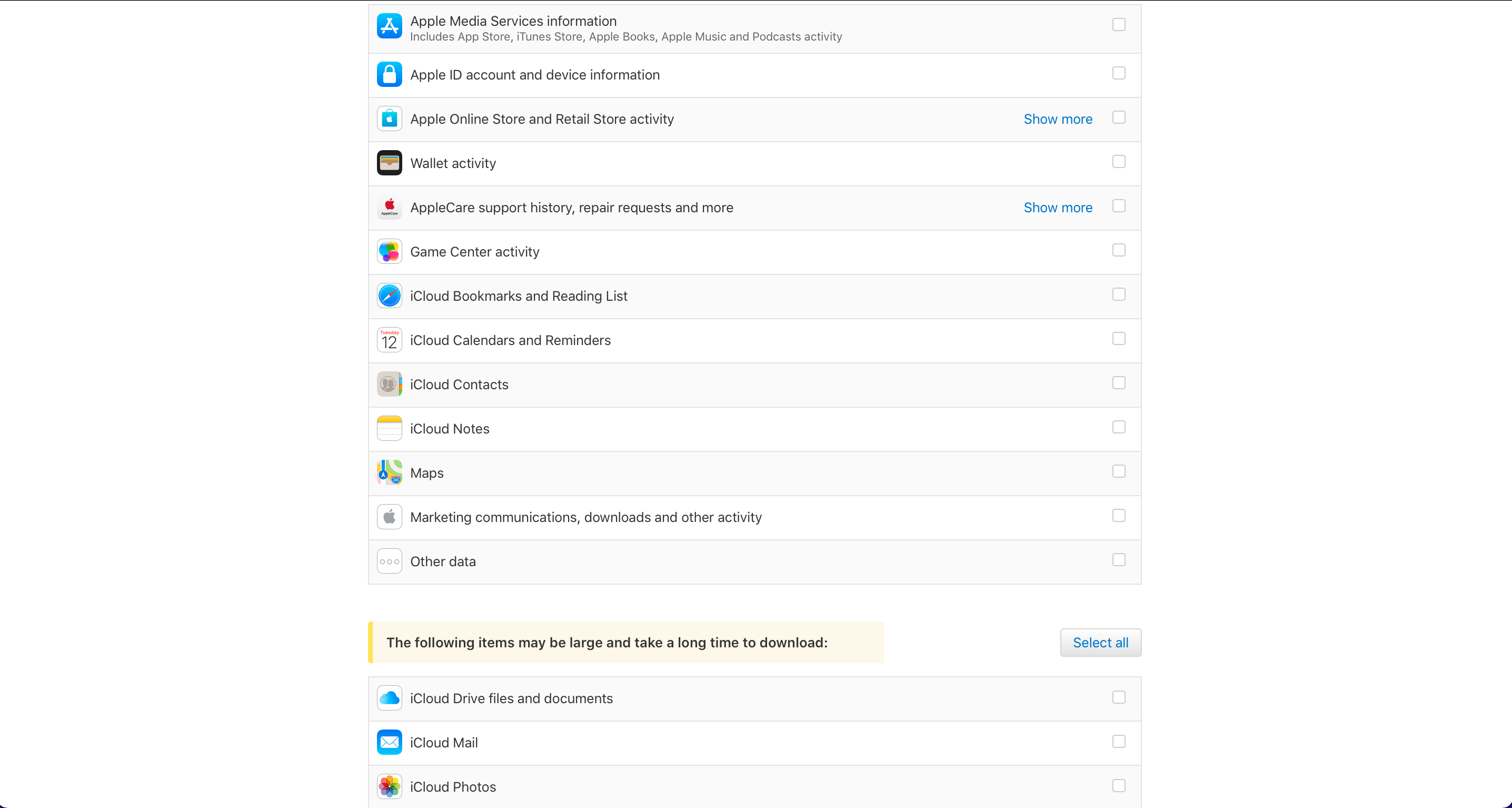
That’s a lot to get through.
It might be a bit alarming to see items like Wallet, Photos, and Mail on the list. However, Apple only collects and stores metadata from these. Rather than storing your card number, photo, or email in its databases, Apple stores the data about the data, such as when a photo was taken.
All of your card activity with Apple Card is also available to Apple, as well as data about how often you use your device and what apps you use. Siri’s data normally sits on the list, unless you have opted out from this setting.
Can I Get a Copy of My Apple Data or Delete It?
Under data protection laws, you have a right to receive a copy of your personal data from any company, which includes Apple.
If you’d like to request a copy of all the data Apple has about you, head over to the Apple’s Data & Privacy page. You’ll then need to sign in with your Apple ID. Under the heading Get a copy of your data, you need to click on Get Started.
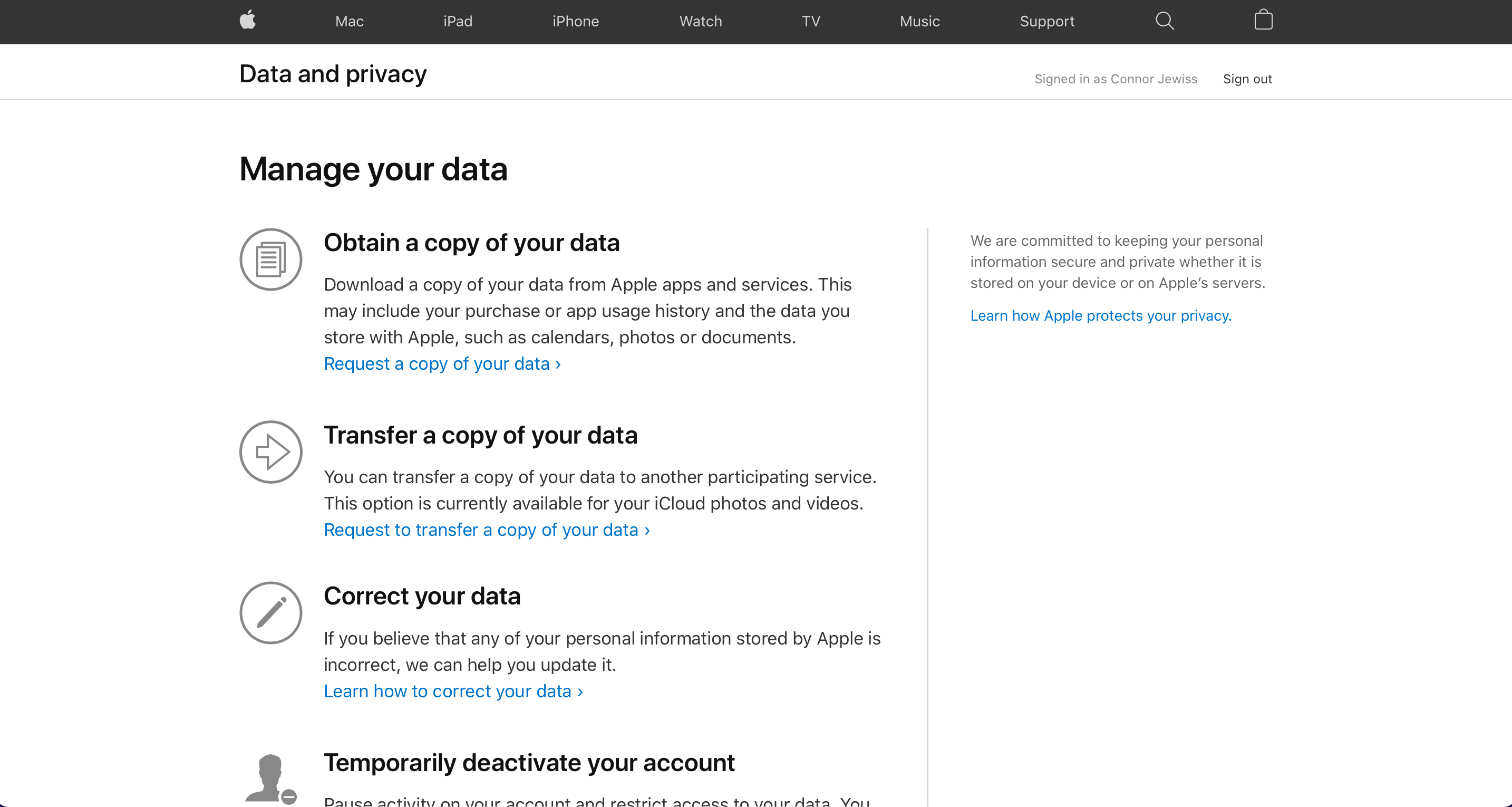
From the list provided, select the data that you’d like to see in the report, then click Continue. You’ll then be asked what size you’d prefer to break each file of your data into; click Complete Request when ready.

Apple makes it clear that you won’t receive any encrypted data in this report, as it can’t unencrypt it. This makes sense, as it would defeat the whole point of data encryption and security. It also doesn’t include data that has since been deleted.
If you’d prefer to have all your data deleted from Apple’s databases instead, this is an option. Select the Request to delete your account option under the heading Delete your account on the Data & Privacy homepage. You’ll be asked to confirm a reason, and can then click Continue.
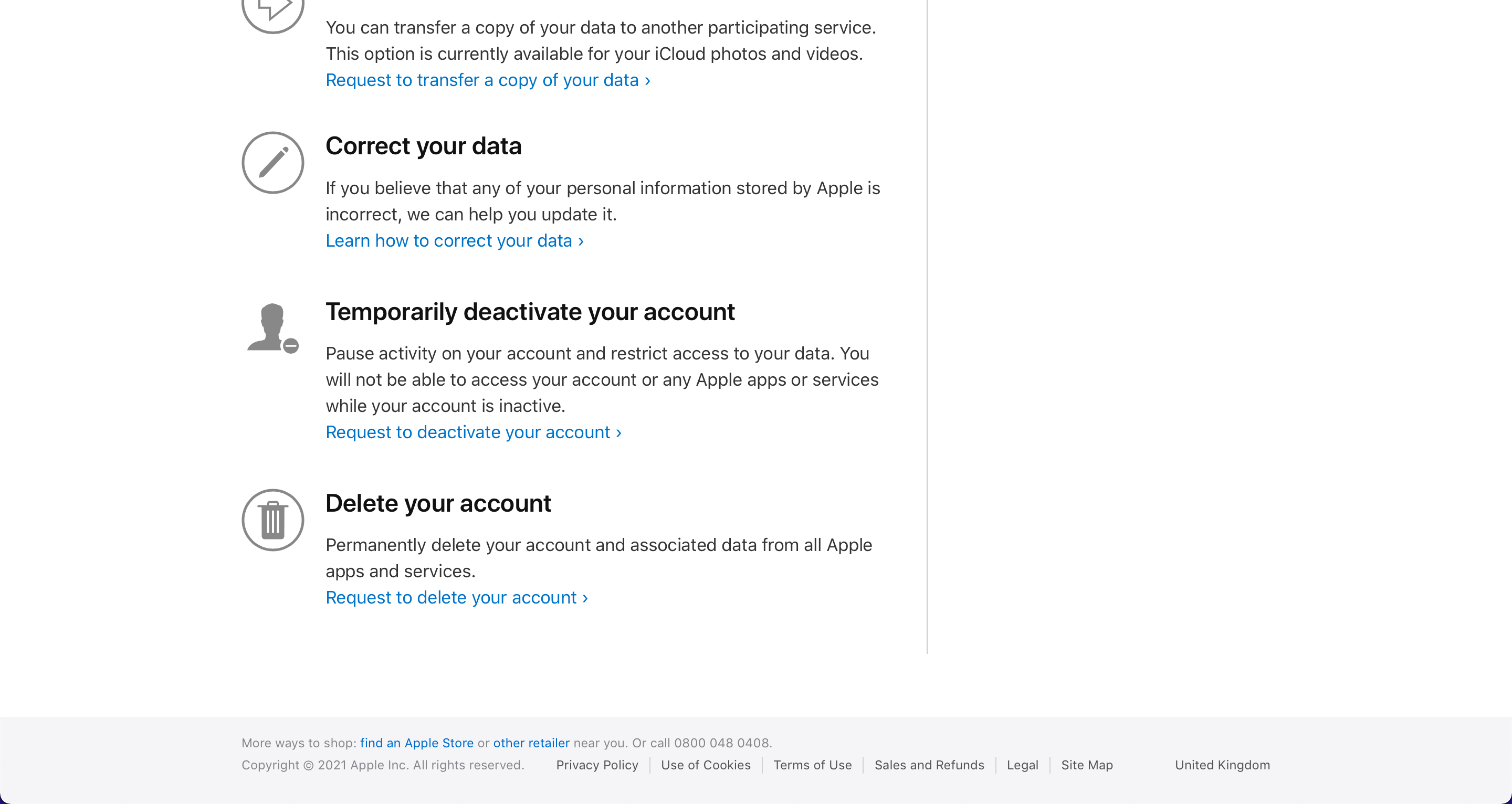
Be aware that this will delete your Apple ID account as well as all associated data. Anything stored in iCloud will get erased, your purchases will be deleted, and you won’t be able to use Apple services such as FaceTime or Apple Music.
Why Does iOS Collect Data?
While Apple’s exact reasons for data collection are its own, there are some pretty clear reasons why Apple does it through iOS. Since you use your iPhone primarily, it’s the best place to pick up data.
Apple wants to collect some data to see which products and services you use, so that it knows which ones to advertise to you. Ever wonder why you see emails about the new iPhone but not the new Apple Watch? It’s probably because you only own an iPhone and not an Apple Watch.
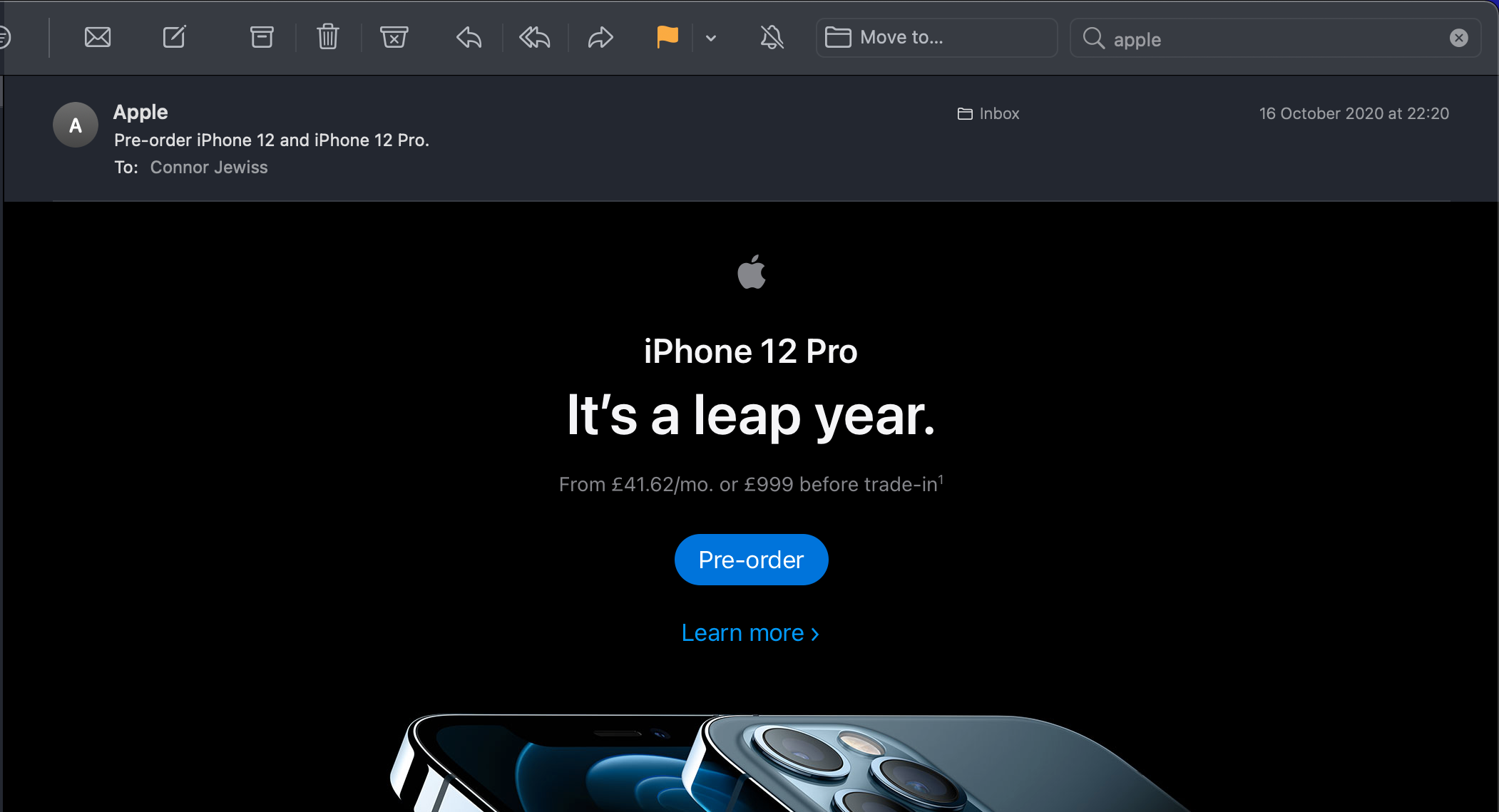
At the end of the day, Apple is a company, and so wants to sell its products to you. Targeted advertising like this helps it to do so in the best possible way.
Another reason for collecting data is to improve your experience of using Apple products and services. If Apple didn’t collect any data you wouldn’t get Apple Music suggestions, helpful Maps notifications, and similar.
While these features are definitely non-essential for those that would rather not use them for the sake of privacy, they arguably do improve the overall experience on iOS.
An Apple a Day Doesn’t Keep All the Data Away
Even though Apple particularly focuses on privacy, this doesn’t stop the company from collecting data. Granted, it’s not nearly as bad as some other companies, but it’s not totally clean of data collection either. Certainly, some of the data is used to give you a better Apple experience.
But whether you’re comfortable with the data Apple has on you or not, you have the freedom to do with it as you choose.


